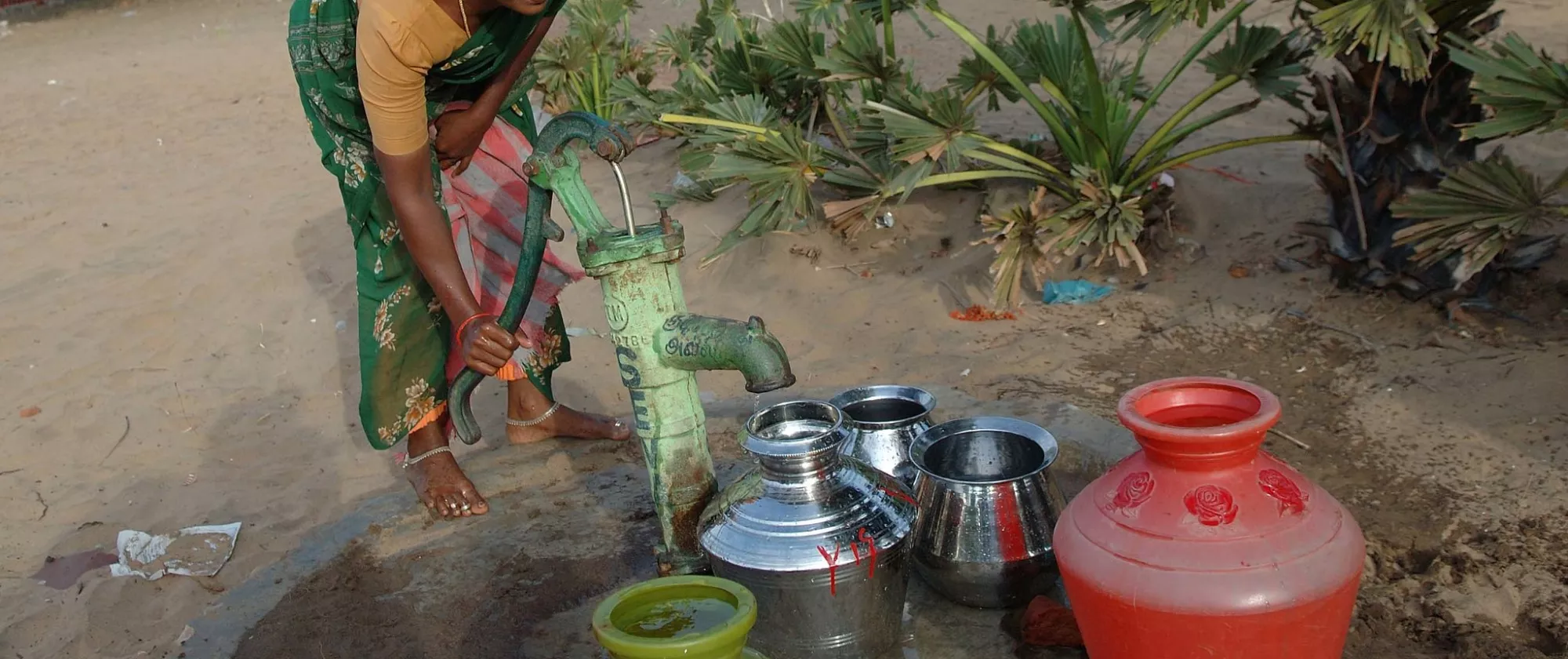
Utilities (water, gas, electricity) sector
Utilities (water, electricity and gas) are essential services that play a vital role in economic and social development. Quality utilities are a prerequisite for effective poverty eradication. Governments are ultimately responsible for ensuring reliable universal access of service under accountable regulatory frameworks. The SDGs require that utilities collaborate with governments to provide universal access to water, sanitation and electricity, and decent working conditions for their workers. Governments should also promote dignified work for fecal sludge cleaners and women engaged in water fetching. Adequate staffing and training in the use of new technologies help ensure efficiency and safety in the workplace.

As a sewer worker, I want respect and safer working conditions
I am a sewer worker in Lahore, Pakistan. I clear sewer system blockages. Every time I enter a sewer I don’t know if I will get out alive. I risk getting cut by blades and broken glass. Getting injured is a normal part of my job.
Resources
.pnga448.webp)
WASH@Work: a Self-Training Handbook (revised version)
Event
Workshop on decent work for sanitation workers in South Asia
Video
SDG 6 - Water and Sanitation
Working Paper no. 314
Wastewater and jobs: The Decent Work approach to reducing untreated wastewater